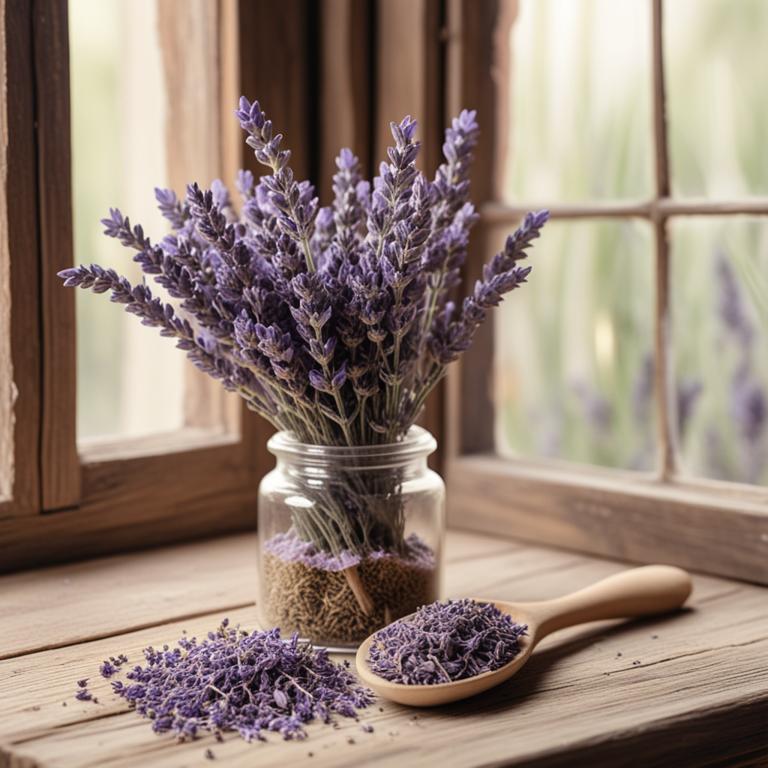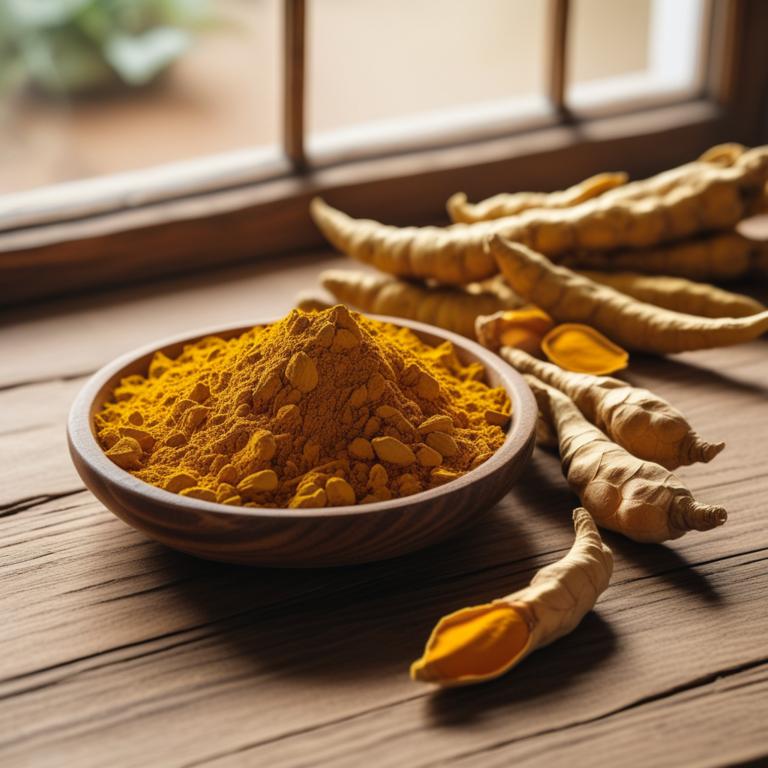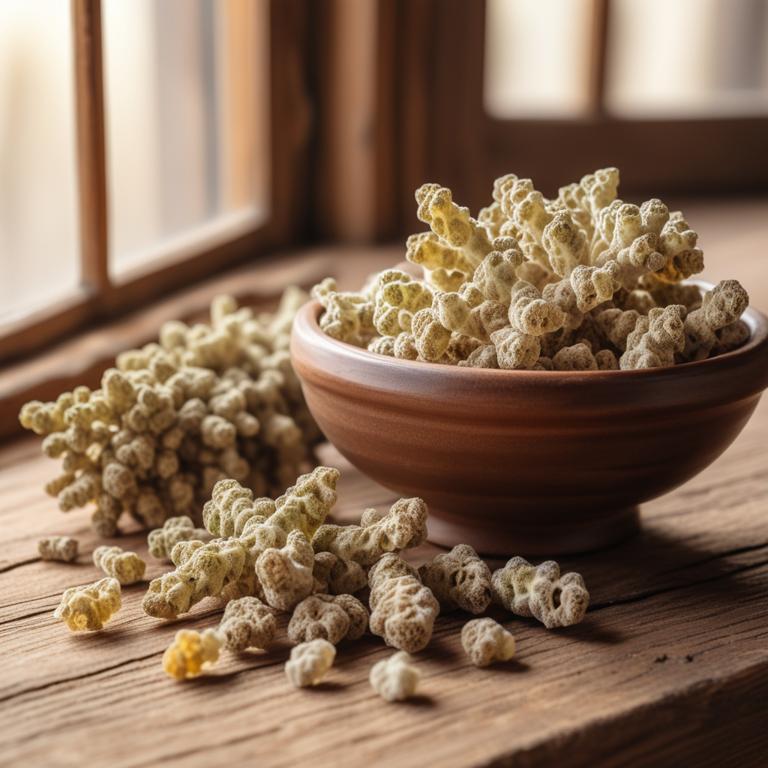Updated: Dec 1, 2024
Neck Pain Relief Through Medicinal Herbs and Herbal Preparations
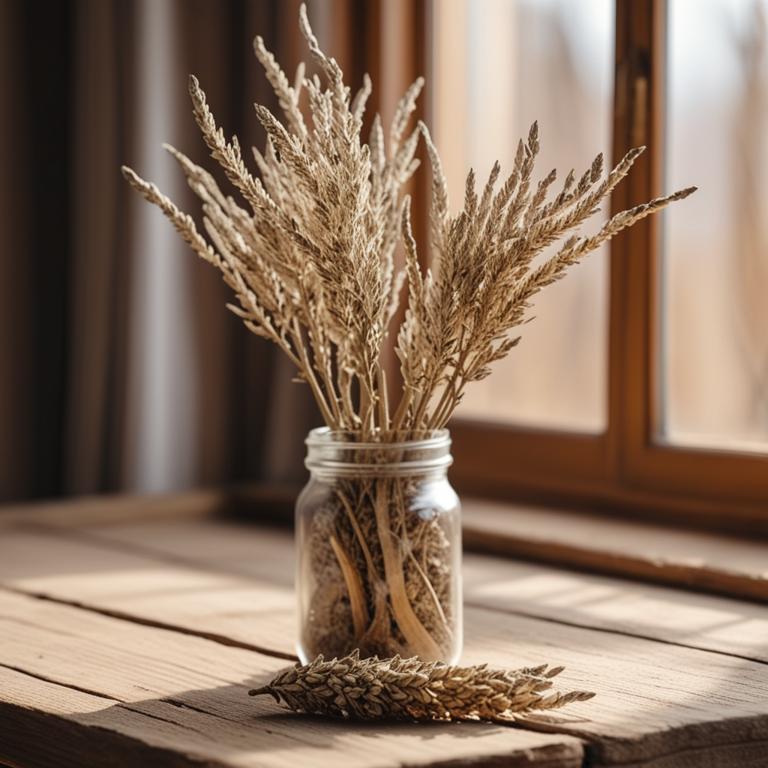
Neck pain is a common problem that can affect anyone, anywhere.
It can cause stiffness, soreness, and limited mobility, making everyday activities like bending, lifting, or even sleeping uncomfortable. Imagine not being able to turn your head or look over your shoulder without wincing in pain. Neck pain can disrupt your daily routine, making it difficult to work, exercise, or even enjoy your favorite hobbies. The causes of neck pain are varied, but common ones include poor posture, muscle strain from heavy lifting or bending, and even stress and anxiety. Sometimes, neck pain can be a symptom of an underlying medical condition, like arthritis or a herniated disk. Whatever the cause, neck pain can be debilitating and frustrating.
Fortunately, there are some natural remedies that can help alleviate neck pain. Certain herbs, like turmeric and ginger, have anti-inflammatory properties that can reduce swelling and ease pain. Willow bark, which contains salicylic acid, is another herb that has been used for centuries to relieve pain and reduce inflammation. These herbs can be consumed as teas, capsules, or even applied topically as creams or oils. To use these herbs, you can try making a warm tea by steeping dried turmeric or ginger roots in hot water. You can also add willow bark to a warm bath for a soothing soak. Some herbal supplements come in capsule or tablet form, which can be taken as directed.
When using herbal remedies, it's essential to follow proper preparation and dosing instructions to ensure safety and effectiveness.
Table of Contents
What causes neck pain?
The main causes of neck pain are a combination of various factors that can put pressure on the muscles, ligaments, and joints in the neck.
Herniated Disc occurs when a disc between the vertebrae in the neck bulges out and presses on nearby nerves, causing pain. This can happen due to aging, injury, or repetitive strain. Degenerative Disc Disease is a condition where the discs in the neck degenerate over time, leading to pain and stiffness. This can be caused by wear and tear on the spine, especially with age.
Whiplash is a type of neck injury caused by a sudden jerk or jolt to the head or neck, often resulting from a car accident or sports injury. Cervical Spondylosis is a condition where the vertebrae in the neck degenerate, leading to pain and stiffness. This can be caused by age-related wear and tear, as well as poor posture or muscle strain. Torticollis, also known as wry neck, is a condition where the neck becomes twisted or turned to one side, causing pain. This can be caused by muscle strain, injury, or even a minor injury to the neck muscles.
Stress can also contribute to neck pain by causing muscle tension in the neck and shoulder area, leading to pain and stiffness.
What advantages do herbs offer for relieving neck pain?
Using herbs for neck pain can be a great alternative to traditional treatments.
These natural remedies have anti-inflammatory properties, which help reduce swelling and ease tension in the neck muscles. This leads to a significant decrease in pain and discomfort.
Many people find that herbs also improve their range of motion and flexibility, making it easier to move their head and neck without feeling stiff or sore. Additionally, some herbs have a calming effect on the body, which can help reduce stress and anxiety that often contribute to neck pain.
By incorporating herbs into your daily routine, you may be able to reduce your reliance on pain medication and find a more natural way to manage your neck pain.
What medicinal herbs are commonly used to treat neck pain?
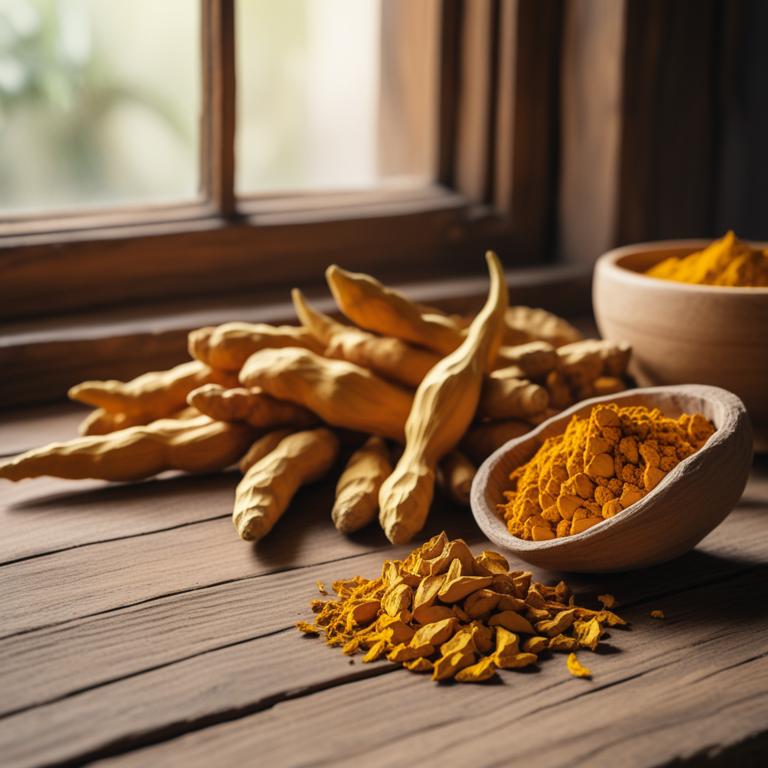
Herbs can be a great help for neck pain.
Let's look at some of the most effective ones. Curcuma longa, also known as turmeric, is a popular choice for its anti-inflammatory properties. It has a compound called curcumin, which reduces swelling and pain in the neck muscles. This makes it easier to move your head and neck without discomfort. Another herb that's good for neck pain is Zingiber officinale, or ginger. It's known for its soothing effects on the body and has anti-inflammatory properties similar to turmeric. Ginger helps to relax the muscles in your neck, which can become tense and stiff due to strain or injury. Salvia officinalis, or sage, is also a great herb for neck pain relief.
It contains compounds that reduce inflammation and pain, similar to turmeric and ginger. Sage has been used for centuries to treat various health issues, including muscle and joint pain. Ginkgo biloba is another herb that can help with neck pain. It's known for its ability to improve blood flow and reduce inflammation in the body. When your neck muscles are inflamed, ginkgo biloba can help to reduce this inflammation and promote healing. Finally, Capsicum annuum, or cayenne pepper, is a great herb for neck pain relief. It contains a compound called capsaicin, which reduces pain by blocking the production of a chemical that transmits pain signals to the brain. This makes cayenne pepper a great natural remedy for neck pain. These herbs can be used in various forms, such as teas, tinctures, or topical creams.
They can also be added to your meals or used as spices.
What herbal treatments are most widely used to address neck pain?
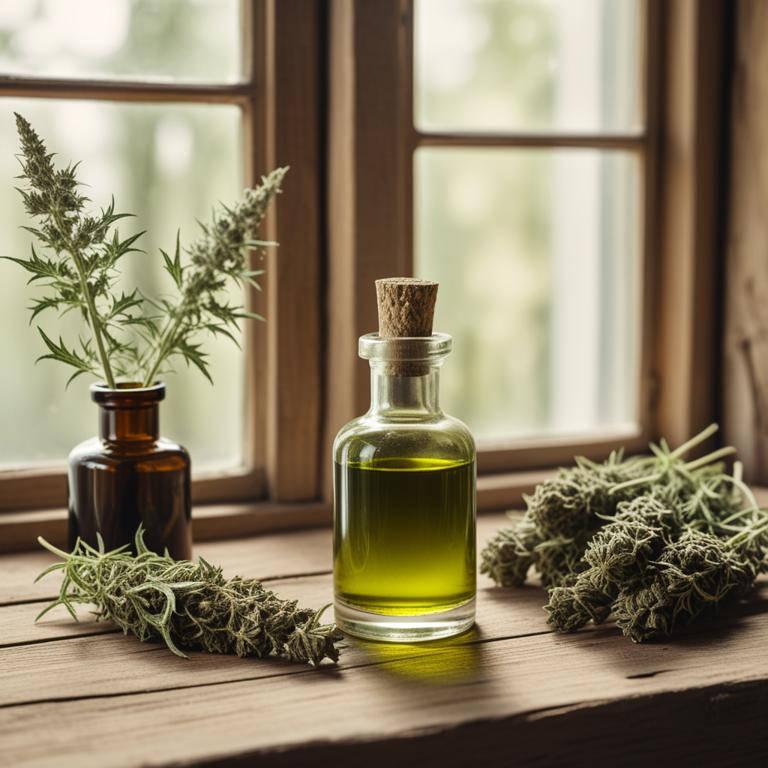
If you're experiencing neck pain, herbal preparations can be a great way to find relief.
A Capsule is a convenient way to take herbs, as it's easy to swallow and the herbs are concentrated, making them more potent. For example, Capsules of Turmeric can be helpful because of its anti-inflammatory properties, which reduce swelling and ease pain in the neck area. Herbal Tinctures are liquid extracts that can be taken sublingually, or under the tongue, where they're quickly absorbed into the bloodstream. Tinctures of Willow Bark are good for neck pain because they contain salicin, a compound similar to aspirin that reduces pain and inflammation.
A Decoction is a liquid herbal preparation made by simmering herbs in water. Decoctions of Ginger and Cinnamon can be helpful for neck pain because they have anti-inflammatory and warming properties that ease pain and stiffness. A Salve is a topical herbal preparation, usually in a cream or ointment form, that's applied directly to the affected area. Salves of Arnica and Calendula can be good for neck pain because they reduce inflammation and promote healing. Lastly, an Infusion is a liquid herbal preparation made by steeping herbs in hot water.
Infusions of Chamomile and Lavender can be helpful for neck pain because they promote relaxation and reduce muscle tension, which can contribute to pain and stiffness in the neck area.
Additional Resources:
Which herbs are not suitable for individuals experiencing neck pain?
If you're experiencing neck pain, it's best to be cautious with certain herbs.
Valeriana officinalis, also known as valerian root, can be a bit of a problem because it's quite relaxing, which might not be what you need when you're hurting. When you're in pain, it's usually a good idea to stay alert and focused, but valerian root can make you feel drowsy. This might make it harder for you to move around or take care of yourself, which could lead to further complications. Hypericum perforatum, or St. John's Wort, has some side effects that might not be ideal for neck pain sufferers. It can interact with other medications, including painkillers, which could reduce their effectiveness or make them less safe to take. This is especially concerning if you're already taking medication for your neck pain.
Additionally, St. John's Wort can make you feel more anxious or jittery, which might not be what you need when you're trying to manage your pain. Aristolochia clematitis, also known as birthwort, contains a chemical that can damage your kidneys over time. This is a serious concern, especially if you have pre-existing kidney problems. While it might be tempting to try and relieve your neck pain, it's not worth risking your long-term kidney health. Vitex agnus-castus, or chaste tree, can affect hormone levels, which might be a problem for people with neck pain. Some research suggests that hormone fluctuations can exacerbate neck pain, so using vitex agnus-castus could potentially make things worse. Paeonia lactiflora, or peony root, can slow down blood clotting, which might not be ideal for people with neck pain.
If you have a cut or bruise on your neck, using peony root could make it harder for the wound to heal.
FAQ
Are there any specific herbs that can prevent neck pain?
Ginger has anti-inflammatory properties that may help ease neck pain.
Turmeric contains a similar compound called curcumin, which has been shown to reduce pain and swelling.
Peppermint oil can also provide relief by relaxing tense muscles and improving blood flow to the affected area, making it easier to move and reduce discomfort.
Is it safe to use herbal remedies for neck pain during pregnancy?
When using herbal remedies for neck pain during pregnancy, it's essential to be cautious.
Some herbs can stimulate the uterus and cause problems. For example, ginger can be safe in small amounts, but excessive consumption might lead to uterine contractions.
Always follow the recommended dosage and talk to the person who prepared the remedy about any concerns.
Are there any herbs that can reduce the frequency of neck pain?
Ginger and turmeric are two herbs that may help reduce neck pain.
They have anti-inflammatory properties that can soothe sore muscles and joints. Some people use ginger tea or add turmeric to their meals to ease neck pain.
These herbs have been used for centuries to calm muscle tension and promote relaxation.
Can i combine different herbal remedies for neck pain?
Combining different herbal remedies for neck pain can be tricky.
Some herbs, like feverfew, may slow blood clotting, while others, like ginger, can thin it. Combining these could increase bleeding risk. Also, certain herbs, like valerian, can interact with medications.
It's essential to know how each herb works and interacts with others before using them together.
Related Articles

Jammed Finger Care: Causes, Medicinal Herbs, and Preparations

Causes of Joint Pain and Natural Relief through Medicinal Herbs and Preparations
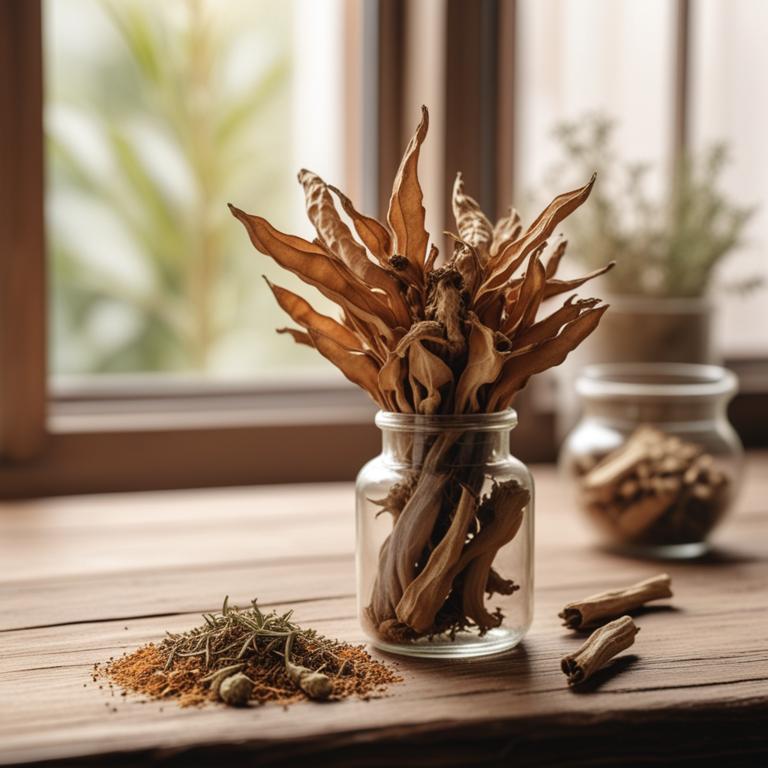
Understanding Lower Back Pain: Causes, Medicinal Herbs, and Herbal Preparations
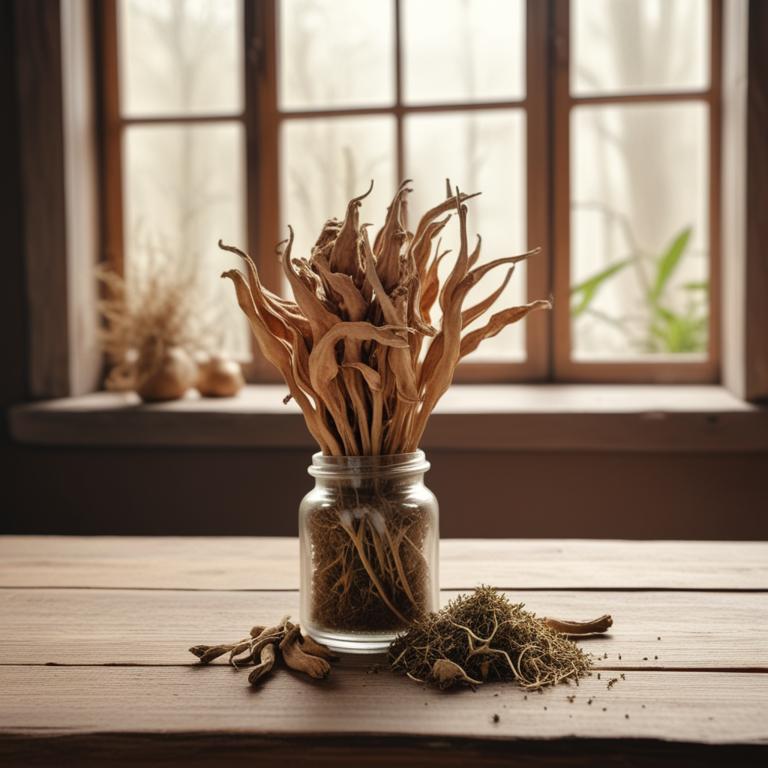
Tendinitis Relief: Exploring Medicinal Herbs and Their Preparations
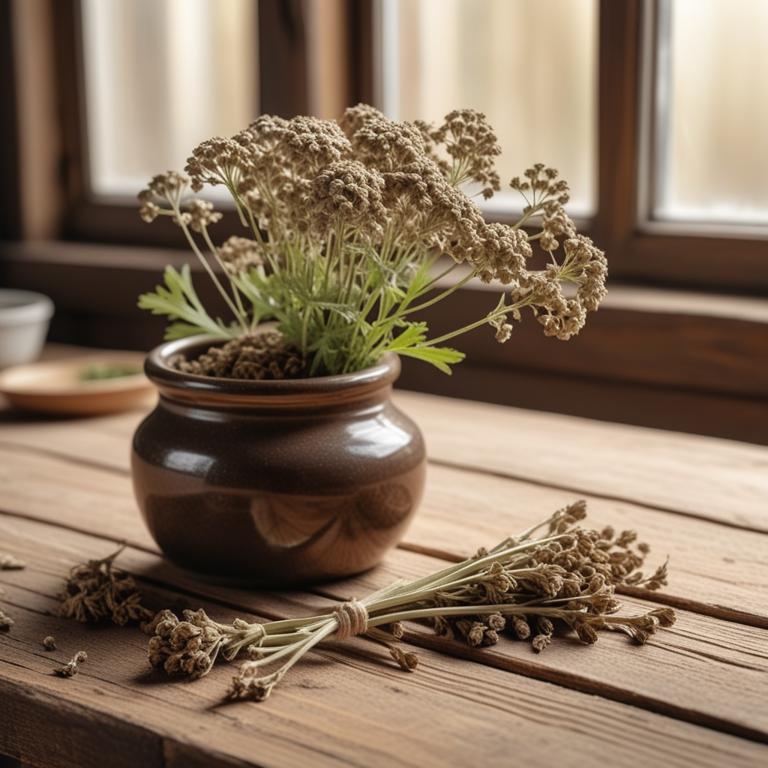
Understanding and Treating Leg Cramps with Medicinal Herbs
